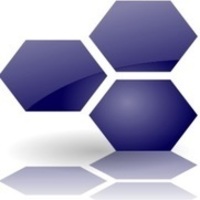Papers by Marcelo Fabian Maina
La tecnología como eje del cambio metodológico, 2020, ISBN 978-84-1335-052-3, págs. 896-899, 2020
Autoriza-se a réplica, cópia, distribuição, transmissão ou adaptação deste relatório em virtude d... more Autoriza-se a réplica, cópia, distribuição, transmissão ou adaptação deste relatório em virtude de uma licença de Atribuição Creative Commons, de forma livre, sempre que se proporcione uma atribuição como a ilustrada na citação abaixo indicada.

This chapter discusses the manifold ways in which the notion of ‘ecology’ and ‘learning ecology’ ... more This chapter discusses the manifold ways in which the notion of ‘ecology’ and ‘learning ecology’ are adopted to interpret digitally-mediated educational contexts, to account for e-learning in higher education and to refer to emergent forms of networked environments and related learning practices. Moreover, the chapter provides a brief discussion on a research case focusing on the investigation of PhD students adopting social media in their doctoral journey. Exploring concepts such as ‘resilience’,‘keystone species’, and an ecological view of agency enables the researcher to better understand and design learner experiences in a changing digital landscape and subsequentely to assist learners integrate their self-organized digital practices into the academic ecosystem. Thinking of doctoral students using social Web tools for academic purposes in ecological terms helps to consider the adoption of ICTs as a component in an ecology of resources. Focus is on personal ecologies, emerging fr...

Innovations in the Design and Application of Alternative Digital Credentials, 2022
Embedding employability skills into the core of higher education is a priority worldwide to reduc... more Embedding employability skills into the core of higher education is a priority worldwide to reduce the skills gap and better equip graduates for entering or progressing in the workplace. This chapter presents an innovative solution based on high impact e-portfolio practices developed within the H2020 EPICA project oriented towards making employability skills visible. It also reports on the implementation of a new methodology for assessing and micro-credentialing employability skills tested in three East African universities. The pilot carried out in a variety of study programs is described along with the measures taken to address the spread of COVID-19. Lessons learnt, transfer possibilities, and organizational implications are also reported as a final note on the experience. This high impact learning experience aims to inspire academic institutions to innovate by integrating e-portfolio and micro-credentials along with fresh pedagogical practices and strategies that better align th...

Pixel-Bit, Revista de Medios y Educación, 2021
El elevado nivel de penetración del smartphone junto con su reducido coste de implementación en e... more El elevado nivel de penetración del smartphone junto con su reducido coste de implementación en el ámbito educativo hace que el m-learning sea una tendencia en crecimiento a nivel mundial. Este artículo presenta los hábitos de uso de aplicaciones para la comunicación y el aprendizaje móvil del alumnado de educación superior e identifica factores que pueden favorecer la intención de adoptar herramientas de m-learning basadas en el smartphone entre el alumnado universitario. Para ello se administró un cuestionario basado en el modelo UTAUT2 de adopción de tecnología a 176 estudiantes de distintos cursos del Grado en Publicidad y Relaciones Públicas de la Universidad de Vigo. Los resultados muestran los principales usos que hacen los estudiantes del smartphone, sus preferencias en cuanto a la utilización del dispositivo para el aprendizaje y la importancia de la dimensión lúdica del m-learning en la intención de adoptar este modelo, un aspecto que no muchas investigaciones del campo de...
AI & SOCIETY, 2006
This project was undertaken to develop a telelearning knowledge base aimed at making specialized ... more This project was undertaken to develop a telelearning knowledge base aimed at making specialized telelearning knowledge accessible to non-specialized practitioners in the field. The challenge stems from a rationale related to a user-centered approach for the software design ...

Springer eBooks, 2016
The digital revolution enabled by social and ubiquitous technologies is constantly transforming m... more The digital revolution enabled by social and ubiquitous technologies is constantly transforming macro and micro levels of society including industry, organizations and government as well as ways in which we communicate, we work, and we carry on our daily lives. Education is therefore also being challenged to respond to evolving societal demands by supporting the development of competent and engaged citizens. In this context, individuals' capability to get involved and exploit the affordances of networked environments for learning and development may condition their opportunities to cope with societal and labor demands. In this chapter, the metaphor of learning ecologies is proposed to provide a framework from which to analyze interactions between individuals and their environment, and the way their experiences across different contexts throughout life promote and shape learning processes. Learning ecologies allow us to explore frontier pedagogies connecting formal, non-formal and informal educational contexts, acting as personal strategies that may orchestrate lifelong , life-wide and life-deep learning. We start by defining and framing learning ecologies, providing the theoretical roots and reviewing some recent studies in the field. Next, we propose constructs and models but also strategies and tools that may be of help to enhance and support personal ecologies for learning. Finally, the concept of personal pedagogies is proposed to refer to a set of autonomy and agency skills and attitudes that can be dynamically integrated by individuals to support an ecology for self-development and personal learning. We articulate from this perspective several trends in the area of self-directed learning located in the technological and pedagogical intersection: MOOCs, current awareness, e-portfolios and social networks.

The Art and Science of Learning Design (ASLD) workshop 1 was convened in October 2011 in London, ... more The Art and Science of Learning Design (ASLD) workshop 1 was convened in October 2011 in London, UK, to explore the tools, methods, and frameworks available for practitioners and researchers interested in designing for learning, and to articulate the challenges in this emerging domain. The workshop adopted an unconventional design, whereby contributions were shared online beforehand, and the event itself was dedicated to synergy and synthesis. In a novel bid to make the workshop as open as possible, to external as well as on-site participants, social media tools were employed to support dissemination contemporaneously with the events at the workshop. Participants were encouraged to write collaboratively and critique online, to use twitter, and to contribute to workshop sessions in cloudWorks, 2 a social networking site for finding, sharing and discussing learning and teaching ideas and designs. The present volume is based on the outcomes of the ASLD workshop and the debates that followed since, including the special issue of Research in Learning Technology Mor, Craft, & Hernández-Leo, 2013), and is organised according to some of the thematic strands that were used to structure it. In this introductory chapter, we present the field of Learning Design 3 and the topical themes of the workshop. We begin by presenting and comparing the common definitions of Learning Design (LD), and clarifying its links to the related but distinct field of Instructional Design (ID). We then relate conceptions of Learning Design to the structure of the book. We explore its relevance and value to the stakeholders of Learning Design by highlighting some of its current issues and challenges. We conclude with an overview of the chapters in this book, relating them to these key thematic strands of Learning Design and its grand challenges. NOTES 1 2 Topics on Cloudworks are organised as "clouds" and "cloudscapes". The ASLD workshop clouds, comprising comments, discussions, notes and the accepted peer-reviewed papers can be found within the ASLD cloudscape:

RIED: Revista Iberoamericana de Educación a Distancia, Oct 17, 2022
La evaluación por competencias en la educación superior es uno de los mayores retos a los que se ... more La evaluación por competencias en la educación superior es uno de los mayores retos a los que se enfrentan las universidades en la actualidad. Este artículo presenta la evolución de una propuesta metodológica transversal en un programa de máster en línea, para el desarrollo y la evaluación de la capacidad de autorregulación del estudiantado a través de una estrategia de autoevaluación fundamentada y dialogada. Dicha evolución, fruto de una evaluación continuada de la implementación de la propuesta, supone cambios en el planteamiento metodológico inicial y la integración de la tecnología como facilitadora del proceso. Partiendo del concepto de diseño centrado en el estudiantado, se plantea un estudio longitudinal durante tres cursos académicos en el que se recoge de manera sistemática la opinión y percepción del estudiantado y del profesorado del programa. Concretamente, y a través de un análisis de los elementos a mejorar en cada una de las tres fases, se identifican un conjunto de decisiones sobre el diseño original que finalmente ha derivado en la creación e integración de una herramienta ad hoc para la autoevaluación competencial y la autorregulación en un entorno virtual. Las conclusiones del trabajo ponen de relieve la importancia de pensar soluciones de manera integral, atendiendo a la necesidad de proveer un andamiaje al estudiantado para mejorar su capacidad de autorreflexión, de formar al profesorado en el trabajo y evaluación por competencias y de contar con las herramientas adecuadas para sostener dichos procesos. Palabras clave: evaluación competencial; educación superior en línea; autoevaluación; autorregulación; diseño centrado en el estudiantado.
Podéis consultar nuestro catálogo en www.editorialuoc.com La pandemia por COVID-19 ha sacudido lo... more Podéis consultar nuestro catálogo en www.editorialuoc.com La pandemia por COVID-19 ha sacudido los cimientos de nuestra educación. Nos hemos encontrado ante la imposibilidad de que nuestro alumnado pueda desplazarse a los centros educativos, que han sido cerrados a causa del confinamiento decretado en la mayoría de países. De forma imprevista, las instituciones educativas se han visto obligadas a adoptar soluciones de emergencia, migrando hacia modelos de docencia no presencial remota, que han permitido parar el golpe.
TDX (Tesis Doctorals en Xarxa), Dec 3, 2010
Allow me first to say that the order of my thanks does not by any means reflect any order of pref... more Allow me first to say that the order of my thanks does not by any means reflect any order of preference or 'amount' of gratitude in particular. Each one of the above mentioned people and organizations has highly contributed to my journey: through reflection, by economic contributions, with emotional support. My special thanks to my supervisor Olga Marino for her comprehensiveness, respect of my ideas as well as bright guidance.

Applied Sciences
The progressive shift from a transmissive to a competence-based approach emphasises the need to d... more The progressive shift from a transmissive to a competence-based approach emphasises the need to design new models and tools for competence assessment. In order to address this need, this study, firstly, introduces the assessment model for digital competence in primary and secondary schools developed within the H2020 CRISS project. The Competence Assessment Model (CAM) (1) embraces the integration pedagogy approach in which competences are embedded within the curriculum and (2) provides competence assessment scenarios (CAS). Secondly, the study presents the results of the evaluation of its quality from the teachers’ perspective through an instrument designed on the basis of nine competence assessment quality criteria. The CAM was tested in a large-scale pilot study conducted in 535 primary and secondary schools across Europe. The outcomes show that the CAM mainly fulfills two out of the nine quality criteria: meaningfulness and authenticity. However, the exploratory factor analysis a...
Lifelong Technology-Enhanced Learning, 2018
CRISS is a flexible and scalable cloud-based digital learning ecosystem that has the potential to... more CRISS is a flexible and scalable cloud-based digital learning ecosystem that has the potential to allow the guided acquisition, evaluation and certification of digital competences in primary and secondary education. This demonstration will highlight some of the key activity scenarios under development, their underlying pedagogy and how the platform's features support the acquisition, assessment and certification of digital competences as the project will be approaching the end of its second year. We will focus particularly on the role of the learning analytics and the adaptive intelligent tutoring system parts of the platform demonstrating their potential.
The development and use of Open Educational Resources (OER) is a growing trend in education, part... more The development and use of Open Educational Resources (OER) is a growing trend in education, particularly, in higher education. The OERtest European project focuses in the development of a systematic and quality assurance framework for the evaluation and recognition of learning through the use of REA. Based on a qualitative methodological approach, the research project aims to provide guidelines and recommendations for the implementation of OER-based learning at a European HE institutions’ level.
Proceedings of the 4th EDEN …, 2006
1 Case method in VTLE: an effective tool for improving learning design Lourdes Guàrdia (lguardia@... more 1 Case method in VTLE: an effective tool for improving learning design Lourdes Guàrdia ([email protected]), Albert Sangrà ([email protected]) & Marcelo Maina ([email protected]) ... Different types of case studies have been classified using different criteria. Hebert et al. ...

Revista de Educación a Distancia (RED)
In the current ecology of learning, participation in massive and open learning environments confe... more In the current ecology of learning, participation in massive and open learning environments confers a new role to the learner as an individual who, connected with others and with the available resources, learns autonomously. In this research we rely on educational regulation as a necessary mechanism of self-directed learning processes in MOOC. Specifically, a metacognitive enrichment process of the design of a MOOC with contributions by its learners is analyzed. Self-regulation is used as a tool to personalize and make massive learning more flexible in a technified ecology. More specifically, a profiling tool for learners for their self-directed learning is proposed in relation to three skills axes: motivational, social and reflective. The qualitative analysis of the contributions in co-design workshops to a learner profile test and the results obtained in the implementation of this test in the MOOC provide the following results: a) the characteristics of the regulatory profiles and...

Interaction Design and Architecture(s), 2020
The paper presents the design of a self-regulated learning support layer which focuses on fosteri... more The paper presents the design of a self-regulated learning support layer which focuses on fostering learning agency awareness and student ownership in MOOC as quality deep learning indicators. Rooted in self-regulated learning ownership provides remarkable learning factors such as a sense of belongingness, increased commitment and perception of self-efficacy. These qualities are rather scarce in MOOC, as shown by the predominant techno-pedagogical design of these courses. The self-regulation support layer was developed in two phases: first, a literature review on the field and the analysis of several MOOC provided relevant insights for the theoretical approach of the layer and, second, different types of prompts in the form of self-questions were contextualized and placed throughout an existing MOOC with the involvement of researchers, teachers and MOOC content developers. Finally, in order to refine the design and include elements to enhance a more psychological-ownership-oriented ...










Uploads
Papers by Marcelo Fabian Maina